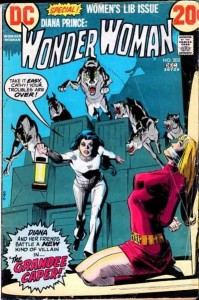
The thing I’m not fond of, which has arisen in recent years, is the idea that one should vote according to one’s politics, and plunk down a vote for the “right” books without bothering to read them. Some people like to justify this by pointing to something that is undeniably true — the award is often less often the expression of the opinion of SF fans overall than that of a small subset of those fans and sometimes — perhaps even often — popularity, access to high-traffic websites, or other factors not related to quality of writing affects those results. In these cases, that’s usually used as a justification for throwing the votes in what’s perceived in the opposite direction.
And my reply is this: FFS, people, read stuff and vote for the stories you like, the stories which YOU find well-crafted and appealing. Go download the excellent Campbell sampler that Marc Blake has been putting together each year and take the time to read through it. Look at the ‘year’s best’ lists. Ask people what they liked that you might. Look at the five kerjillion “here’s what I have eligible this year” posts, particularly if you have a favorite author and want to make sure you don’t miss anything by them.
But read it and apply your standards to it and then vote for what you thought was the best story/novella/whatever. Anyone telling you to vote any other way, anyone offering their work and saying “you should vote for this because we belong to the same category” rather than “I hope you’ll vote for it if you like it” has an agenda that is not at all about quality of writing.
Yes, there are “taste-makers” — critics whose likes and dislikes are listened to, and often used for guidance. But those folks fall all over the spectrum and the answer, if you think there’s not someone representing your particular niche of opinion is to become one yourself, by putting your opinion out there articulately, clearly, and interestingly, which is the very same process by which those taste-makers got to that position.
You may well not agree with a particular award’s results. Opinions are like…well, you probably know how that saying goes. There’s plenty of room in a world this size for a vast array of opinions. But when a piece you didn’t like wins an award, saying that it did so because of politics comes off as soreheaded sour grapes more than anything else. Let’s face it, a shitty, badly-written piece has an awfully steep (but again, admittedly not impossible) hill to climb before accumulating the avalanche of votes something needs to win one of the major awards. But assuming that because you don’t like something no one else is justified in liking it is narcissistic egotism.
Want to see the stuff that you like on the ballots? Nominate it, vote for it, spread word about it on social media, through reviews, and via blog posts or other writings. Work at that, not trying to handicap the other candidates just so yours can limp home. And read stuff and decide for yourself, don’t just take the slate of predigested candidates someone has prepared so you don’t have to read any of that nasty conservative/liberal/whatever prose and actually think for yourself. Read all over the spectrum, not just one color. You’re shortchanging yourself of some good stuff otherwise.






23 Responses
.@Catrambo also being smart, re: Hugos and other awards! http://t.co/Pn3BBKAtN9
John Glover liked this on Facebook.
Danielle Myers Gembala liked this on Facebook.
RT @DjangoWexler: .@Catrambo also being smart, re: Hugos and other awards! http://t.co/Pn3BBKAtN9
RT @Catrambo: The Spontaneous Knotting of an Agitated Awards Process: on #Hugo ballots and such http://t.co/uOqOGUqg3p
Kathryn Sullivan liked this on Facebook.
RT @DjangoWexler: .@Catrambo also being smart, re: Hugos and other awards! http://t.co/Pn3BBKAtN9
RT @DjangoWexler: .@Catrambo also being smart, re: Hugos and other awards! http://t.co/Pn3BBKAtN9
Esther Hazleton liked this on Facebook.
Imma just hibernate till Worldcon is over…
Shawn Scarber liked this on Facebook.
Stephen Gold liked this on Facebook.
Well said!
Rosa Pedersen liked this on Facebook.
Usman Tanveer Malik liked this on Facebook.
Kelly Robson liked this on Facebook.
RT @Catrambo: The Spontaneous Knotting of an Agitated Awards Process: on #Hugo ballots and such http://t.co/uOqOGUqg3p
Louise Marley liked this on Facebook.
Don’t let other people think for you: http://t.co/2lbDLZoJ4O #hugoaward
RT @Catrambo: Don’t let other people think for you: http://t.co/2lbDLZoJ4O #hugoaward
RT @Catrambo: Don’t let other people think for you: http://t.co/2lbDLZoJ4O #hugoaward
The Spontaneous Knotting of an Agitated Awards Process http://t.co/cafgpCeBmq